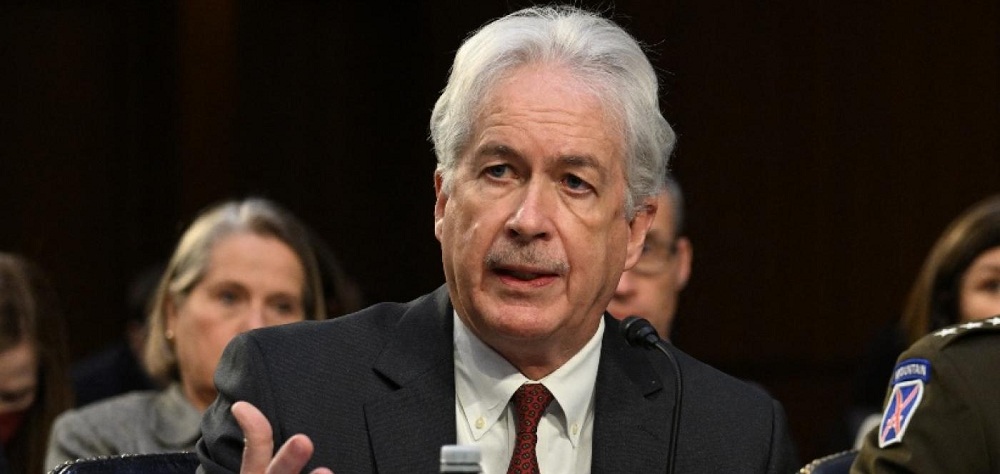Alwaght- Following a Chinese-brokered agreement between Iran and Saudi Arabia to resume relations, Washington-Riyadh ties began to move to further divergence, to an extent that American media recently reported a secret visit to Saudi Arabia of the CIA Director William Burns, with his central aim being expression of the American unhappiness with new regional policies of the kingdom, especially mending ties with Iran and Syria.
The time of the visit remains undisclosed, but according to the Wall Street Journal that cited informed sources, Burns told Saudi Crown Prince Mohammed bin Salman that the US felt “blindsided” by Riyadh’s rapprochement with Iran and Syria -and expressed frustration about Washington having been left in the dark about the rapprochement process.
One of the important reasons for this secret visit and the expression of dissatisfaction with the changes happening to the regional foreign policy of Saudi Arabia is Washington’s concern about the growing position of China in the equations of the West Asia and the geostrategically important Persian Gulf region and the increasing interest in China’s role in the region after mediation of the agreement between Iran and Saudi Arabia. Therefore, many believe that Beijing is also the winner of the historic agreement between Iran and Saudi Arabia. China’s mediation initiative in the long-term dispute between between the two regional powers is a concrete manifestation and a real symbol of this Beijing’s effort to fill the American power vacuum in the region.
While the American regional policy rests on full-scale support of Israel and at the expense of regional security, the Chinese mediation is a novel and different model of action by a global power that brings respect and credibility to China and its leaders. Thus, from Washington’s point of view, Saudi Arabia, as one of the country’s most important allies in the region, by moving close to Iran and Syria and turning to China for mediation, has moved in a direction contrary to common interests.
Saudi new oil surprise for the West
From another aspect, a new decision in association with Russia under OPEC Plus to voluntarily cut 1.6 million oil barrels a day from its oil production was another driver behind Washington-Riyadh ties growing chilly in the current conditions.
The decision came about two weeks after Saudi Arabia’s energy minister rejected any Western move to impose a price cap on Saudi oil, similar to what the G7 did to Russian oil last year.
Saudi Arabia and Russia have the largest share of the new cuts of 500,000 barrels per day. After the announcement of the new OPEC Plus decision, the oil price increased by 5 percent, something Washington estimates will help Moscow to cope with the Western sanction pressures.
Saudi cooperation with Russia is not just limited to oil, and the White House considers Moscow’s role in mediating between Riyadh and Damascus as strengthening Saudi Arabia’s regional cooperation with the West’s rivals. The UAE, Egypt, Oman, Algeria and Jordan have all resumed diplomatic relations with the Syrian government, though the country remains under choking US sanctions.
Calm American response
Although Burner’s visit to Saudi Arabia was for expressing the discontent with Riyadh policies, contrary to expectations, this time, Washington avoided a verbal clash and even open criticism of its ally. This is while the White House announced last October that after Saudi Arabia’s decision to cut oil production in cooperation with Russia, it would punish Riyadh for siding with Moscow in its war against Ukraine.
Senior White House officials at the time even talked about the need to review relations with Saudi Arabia, while members of the Congress called for the withdrawal of US troops from Saudi Arabia and the UAE and the activation of the No Oil Producing and Exporting Cartels (NOPEC) Act, which allows for punishment of countries that impact oil prices.
This time, however, Washington did not issue a strong-toned statement and limited its reaction to a speech by Coordinator for Strategic Communications at the National Security Council in the White House John Kirby, who described the decision to cut production as “ill-advised” and said that Washington was communicating with allies. Kirby said Washington would continue to work with the kingdom to address common security challenges, describing Riyadh as a strategic ally.
The Reuters reported citing the US President as saying that the oil output cuts would not be as “bad as you think”, a stance analysts say is driven by a fear that Saudi Arabia and other Persian Gulf Arab states could take further steps to deepen ties with Russia and China.
Therefore, given the political and security changes in the region, including Syrian return to the Arab League and invitation of its President Bashar al-Assad to the upcoming Arab League summit in Saudi Arabia, the US may find it inevitable to come to terms with new political pathways pursued by Riyadh and other Persian Gulf allies.



























